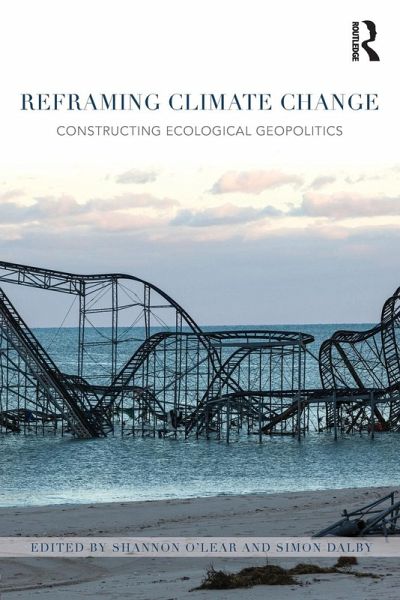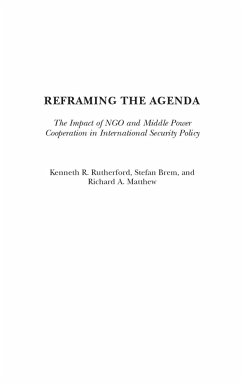
Reframing Climate Change
Constructing ecological geopolitics
Herausgeber: O'Lear, Shannon; Dalby, Simon
Versandkostenfrei!
Versandfertig in 1-2 Wochen
69,99 €
inkl. MwSt.
Weitere Ausgaben:

PAYBACK Punkte
35 °P sammeln!
"Change the system, not the climate" is a common slogan of climate change activists. Yet when this idea comes into the academic and policy realm, it is easy to see how climate change discourse frequently asks the wrong questions. Reframing Climate Change encourages social scientists, policy-makers, and graduate students to critically consider how climate change is framed in scientific, social, and political spheres. It proposes ecological geopolitics as a framework for understanding the extent to which climate change is a meaningful analytical focus, as well as the ways in which it can be detr...
"Change the system, not the climate" is a common slogan of climate change activists. Yet when this idea comes into the academic and policy realm, it is easy to see how climate change discourse frequently asks the wrong questions. Reframing Climate Change encourages social scientists, policy-makers, and graduate students to critically consider how climate change is framed in scientific, social, and political spheres. It proposes ecological geopolitics as a framework for understanding the extent to which climate change is a meaningful analytical focus, as well as the ways in which it can be detrimental, detracting attention from more productive lines of thought, research, and action. The volume draws from multiple perspectives and disciplines to cover a broad scope of climate change. Chapter topics range from climate science and security to climate justice and literacy. Although these familiar concepts are widely used by scholars and policy-makers, they are discussed here as frequently problematic when used as lenses through which to study climate change. Beyond merely reviewing current trends within these different approaches to climate change, the collection offers a thoughtful assessment of these approaches with an eye towards an overarching reconsideration of the current understanding of our relationship to climate change. Reframing Climate Change is an essential resource for students, policy-makers, and anyone interested in understanding more about this important topic. Who decides what the priorities are? Who benefits from these priorities, and what kinds of systems or actions are justified or hindered? The key contribution of the book is the outlining of ecological geopolitics as a different way of understanding human-environment relationships including and beyond climate change issues.














